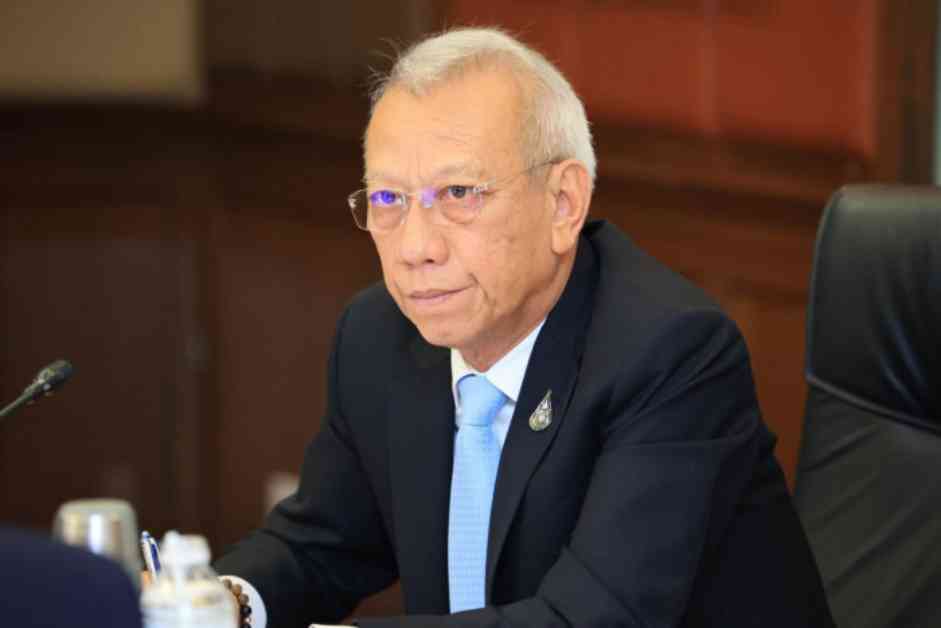Labour Minister Phiphat Ratchakitprakarn is at the center of a growing controversy surrounding the Social Security Office’s (SSO) spending on yearly calendars. The opposition’s call for an investigation has gained momentum, prompting Mr. Phiphat to express his support for the inquiry. As the Labour Minister, he is keen on understanding the rationale behind the production of 4.1 million calendars annually and is open to the possibility of canceling this expenditure. This move comes in response to demands from the People’s Party for transparency regarding the SSO’s financial decisions.
Mr. Phiphat emphasized the importance of keeping the 26 million members of the Social Security Fund (SSF) informed about the SSO’s activities and the benefits they are entitled to receive. Despite his willingness to address questions and concerns, the Labour Minister requested a delay in a scheduled meeting on the matter due to his upcoming travel to Hong Kong and Macau. However, he remains committed to shedding light on the issue upon his return.
Public Consultation on Calendar Production
One of the key points of contention revolves around the necessity of producing such a large number of calendars. Mr. Phiphat revealed that the SSO is currently evaluating the relevance of these calendars and their significance to various stakeholders, including organizations, employers, employees, and SSF members. He highlighted the fact that individuals in remote areas without internet access rely on physical calendars to access information about social security benefits.
In response to the findings of a forthcoming public consultation, the decision to continue or discontinue calendar production will be made. If deemed obsolete, the production of calendars will cease starting in 2027, while preparations for the 2026 batch are already in progress. This move signals a shift towards more cost-effective methods of disseminating information to SSF members while ensuring inclusivity for all demographics.
Ensuring Sustainability and Growth
Beyond the calendar controversy, Mr. Phiphat expressed satisfaction with the SSF’s investment returns, citing an increase from 3.11% in 2023 to 5.34% in the past year. He remains optimistic about surpassing the 5% mark this year and stressed the importance of achieving higher returns to ensure the sustainability and growth of the social security system. By aiming for returns between 6-8%, the SSF can secure its financial future and continue to provide essential benefits to its members.
In a statement, Mr. Phiphat urged all political parties to collaborate in safeguarding the social security system’s stability. He emphasized the need for continuous improvement and growth, suggesting that reaching for higher returns is not only beneficial but necessary for the fund’s longevity. As he looks ahead, Mr. Phiphat remains hopeful that the SSF can achieve even greater financial success in the coming years.
“I believe that 5% is a realistic target for this year, but we should not limit ourselves to that. If there are opportunities for higher growth, we must seize them and aim for 6%, 7%, or even 8% returns,” Mr. Phiphat remarked, highlighting the importance of maximizing the SSF’s financial performance for the benefit of all its members.
In conclusion, the investigation into the SSO’s spending on yearly calendars serves as a precursor to broader discussions on financial transparency, sustainability, and growth within the social security system. As stakeholders await the outcomes of the forthcoming public consultation and decisions on calendar production, the focus remains on ensuring that the SSF continues to thrive and meet the needs of its vast membership base. Through collaborative efforts and strategic financial planning, the future of social security in Thailand looks poised for positive development and long-term success.



















